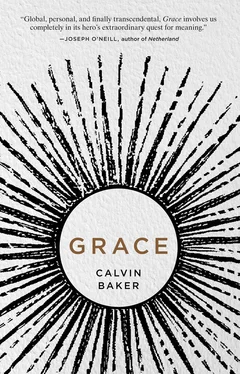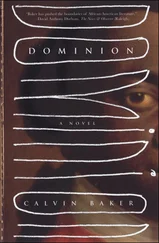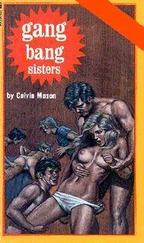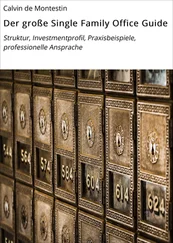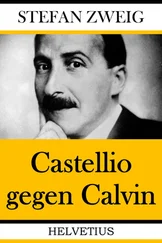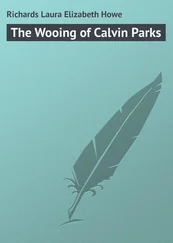When the city snarl unfurled to the open highway, he tried haltingly to account for himself, looking around at us with battered eyes.
“Don’t explain,” Doc said. “You have nothing to say.”
We continued in the Atlantic silence, and by the time we were two hours on the road his sheepishness had worn off only a little. We stopped for a late lunch at a roadside restaurant, then surfed on an empty stretch of beach, and napped in the waning sun. Freddo’s shame was starting to burn away by then, and we presented him with the watch.
“You got it back?” he asked, wide eyed with relief. “How did you manage? Thank you.”
“No. We bought you a new one.”
“I have to find an engraver,” he said, panicking. “If I go home and Doris sees the inscription missing she will destroy me.”
“You don’t deserve her.”
“I know.”
“Say it again.”
“I don’t deserve the woman who married me. She deserves better, and everyone else knows it too.”
It was awful to hear, because it was true, and he looked good and miserable and full of self-loathing for one of the few times since I’d known him.
“Okay enough groveling,” Doc said. “Look on the back.”
Freddo rotated the face of the watch in the dying light, and the timepiece was new, but the inscription was what had been there on the one she first gave to him: “For the only man I ever loved. All my hours. All my life.”
We hit Ihla Grande just before sunset, with still enough time to get in a little more surfing. A group of locals had claimed the beach for their own, and when they saw us approach with our boards, one of them threw a rock to warn us off.
“If you were not here since morning, you cannot just show up and have the last wave,” he snarled, the sound of heavy metal blaring from a speaker beside him.
“If I am here for the first one tomorrow, then I can have the last one?” Doc asked.
“What language do you need me to explain the concept get lost to you in?”
“Whatever pleases you,” said Doc.
“You impertinent delinquent,” Freddo said in Spanish.
“Did he say impertinent?” one of the kids asked.
“He is trying to stone us to death with syllables.”
“Japanese,” said Doc.
“As you wish,” answered their headman, whom they called Jeitinho, in Japanese, so Doc swore to us afterward.
“You can’t just come in the morning and take the best wave,” Jeitinho said, drawing from his joint, and blowing smoke at Doc.
Doc looked at the kid and inhaled from his own joint, and nodded to the kid he thought it was a fair rule.
“Sure we can,” Freddo said, pushing out his chest. “This is a public beach, and we came all the way here, and this pipsqueak is not keeping us off it.”
“Chill,” said Doc. “He lives on the wave and that has rights.”
“All you tourists come all the way here from somewhere, but you don’t know anything about this wave,” the kid said.
“I’ve been riding waves since you were swimming in your father’s gonads, you punk.” I realized as he said it, Freddo was afraid of the country, which was why he kept behaving like a gringo.
“Punk?” laughed Jeitinho. “That is a compliment in these parts. Cankerous mulefucker, there’s an insult for you.”
“Why did you call the sheriff a mulefucker?” One of the other kids asked.
“’Cause he ain’t good enough for no horse.”
Freddo snorted sardonically. “Your life,” he said, thinking of the cruelest thing possible he could tell the kid, “is not going to be what you imagine.”
“That’s enough,” said Doc. “There’s always another wave.”
“There is only one wave,” said Jeitinho.
“When I was a young knight errant, I believed the same,” Doc nodded.
“What’s a knight errant?” asked Jeitinho.
“It is all knights who follow their own path.”
“Ain’t no knights I know about,” said the boy, “but knights who follow the grail. Mine is this wave, and you and your posse of jokers are in my path.”
“Admirable,” said Doc, “but the wave is not your grail. Still, I will not take it away. What’s more, I like you, my friend, and will smoke with you.”
Jeitinho smiled and nodded, pleased to be acknowledged with respect, as he passed his joint to Doc, and Doc passed his joint to the kid. When they had finished the exchange the kid asked in earnest what Doc meant when he said there was more than one wave. Doc finished the joint, and told the kid he was failing to allow for either the non-Euclidian possibilities of the question, or the bicameral nature of the body, but would learn it all in time. The kid nodded and told him he had no idea what he meant but he liked his style so he could surf with them the next morning, but not the rest of us. Doc demurred, telling the kid he should surf his wave while it lasted.
We went swimming instead, further up the shore on an unmarked beach, where we discovered a cove carpeted with oysters, which we harvested from the cyan waters. When we had hauled our treasure back to the beach, we began shucking them greedily, except Freddo, who had not brought a knife.
“Where’s your knife?”
“I didn’t know I would need one,” Freddo answered.
“A man needs a knife.”
“Can someone open some for me?” The question was answered by silence, and averted eyes.
“The woman shamed you, Freddo,” Schoeller said finally. “The lawman shamed you, and even the kid should have taught you something, if you do not see it.”
“See what?”
“Freddo, have you ever stood naked before a mirror and asked, if I were dropped, just as I am right now, in the middle of the jungle, what would my place be in the natural world? Could I survive? What would I serve? Who would I be?”
“Never mind.” Doc opened his kit bag and retrieved a Chesapeake stabber, which he tossed to Freddo’s feet. “We would not want you to starve.”
“You can use his, or there is a village up the road, where you might be able to get one of your own,” Schoeller said.
“Jerk. I don’t know the language,” Freddo answered, looking at the darkening, unfamiliar road, and then to the plump, cool oysters and the shucking knife shining in the dying sun, as he tried to figure out what kind of life to have.
When we had opened the remaining oysters, sprayed them with fresh limes, and slurped them down with the arctic cold local beer, the sun had set, and a bonfire appeared on the beach.
It was what Doc had promised, and there began to appear every predictable pleasure.
I refused to join, not wanting anything more than to enjoy the sea and the stars, and not sink any further beneath the waves.
“You’re not coming to the party?” Doc asked.
“Not after last night.”
“Why not?”
“I broke my code.”
“Your what?”
“My code. There is a right way and a wrong way of doing everything.”
“And that is your code?”
“Yes.”
“And you broke it?”
“Yes.”
“So you have sinned?”
“I have no God. I only have my actions over myself.”
“Even better. You have sinned boldly. Now you are free. So you broke your code. What happened to you? Nothing is what happened. You did not go to hell. The world did not become any worse or better, except to the extent your own sufferings were added to it. Or were they alleviated? That is in you to decide. You say whore. I say the Magdalene. Jesus’s wife.”
“That’s a historical misreading. Mary Magdalene was conflated with two other women in the sixth century.”
“Do you ever let up?”
I knew he meant to be helpful. But I did not know how to let go. How to float in the hands of fate as he seemed to do. Was afraid of what might happen if I did.
Читать дальше
